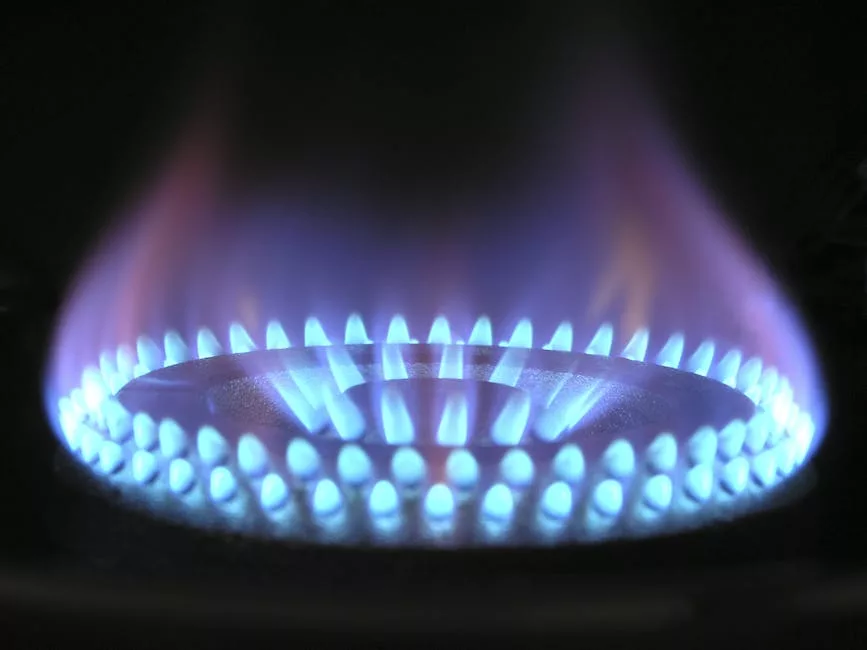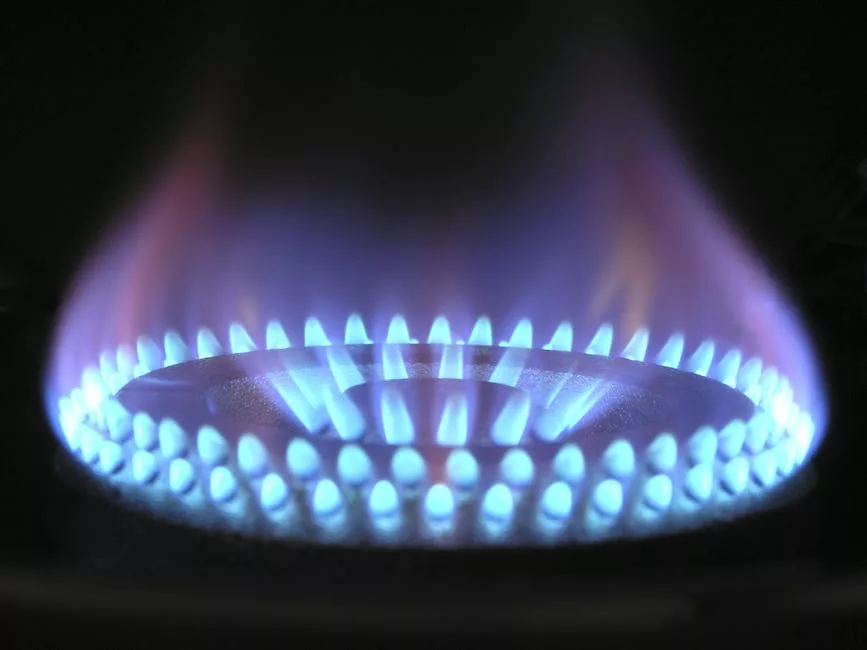Introduction
Gas leaks caused by construction activity can pose serious risks to both workers and the surrounding community. Construction projects often involve digging, drilling, and other activities that can damage underground gas pipelines. When these pipelines are compromised, gas can escape into the surrounding area, leading to potential explosions, fires, and health hazards. It is crucial for construction companies to prioritize safety measures and follow proper protocols to prevent gas leaks and ensure the well-being of everyone involved.
The Impact of Gas Leaks Caused by Construction Activity on Public Safety

Gas Leak Caused by Construction Activity
Gas leaks caused by construction activity can have a significant impact on public safety. While construction is often seen as a necessary evil, it’s important to remember that it can also be a source of danger. In this article, we will explore the various ways in which gas leaks caused by construction activity can affect the safety of the public.
First and foremost, gas leaks can pose a serious threat to the health and well-being of individuals in the vicinity. Breathing in natural gas can lead to a variety of health issues, including headaches, dizziness, and nausea. It’s like being on a rollercoaster without the fun part! In extreme cases, prolonged exposure to gas leaks can even result in unconsciousness or death. Talk about a real buzzkill!
In addition to the immediate health risks, gas leaks can also lead to explosions. When gas builds up in an enclosed space, all it takes is a spark to set off a catastrophic explosion. It’s like playing a game of Russian roulette, but with much higher stakes! These explosions can cause extensive damage to surrounding buildings and infrastructure, not to mention the potential loss of life. It’s a real-life game of Jenga, but instead of wooden blocks, it’s buildings that are at risk of toppling over!
Furthermore, gas leaks can have long-term effects on the environment. Natural gas is a potent greenhouse gas, contributing to climate change and global warming. So not only are gas leaks dangerous in the short term, but they also have long-lasting consequences for our planet. It’s like a bad breakup that just keeps on giving!
So, what can be done to mitigate the impact of gas leaks caused by construction activity? Well, first and foremost, it’s important for construction companies to prioritize safety. This means conducting thorough inspections of gas lines before beginning any construction work. It’s like checking for monsters under the bed before going to sleep – better safe than sorry!
Additionally, construction workers should receive proper training on how to handle gas leaks and respond to emergencies. It’s like being a superhero, but instead of fighting crime, they’re fighting gas leaks! By equipping workers with the knowledge and skills they need, we can ensure that they are prepared to handle any gas-related incidents that may arise.
Finally, it’s crucial for the public to be educated about the dangers of gas leaks and how to respond in the event of an emergency. It’s like giving everyone a crash course in gas leak survival – knowledge is power! By raising awareness and providing resources, we can empower individuals to take action and protect themselves and others.
In conclusion, gas leaks caused by construction activity can have a significant impact on public safety. From the immediate health risks to the potential for explosions and long-term environmental consequences, it’s clear that gas leaks are no laughing matter. However, by prioritizing safety, providing proper training, and educating the public, we can work towards minimizing the impact of gas leaks and ensuring the safety of all. So let’s put on our hard hats and get to work – safety first, always!
Preventive Measures to Minimize Gas Leaks during Construction Projects
Gas Leak Caused by Construction Activity
Construction projects are notorious for causing all sorts of headaches – delays, noise, and of course, the occasional gas leak. Yes, you heard that right, a gas leak! It seems like construction workers have a knack for accidentally hitting gas lines and causing a stink, quite literally. But fear not, my dear readers, for I am here to enlighten you on some preventive measures that can minimize gas leaks during construction projects. And hey, who said learning about safety can’t be fun?
First and foremost, it’s crucial to have a thorough understanding of the site before you even think about picking up a shovel. Get your hands on those blueprints, study them like you’re preparing for a pop quiz, and identify any potential gas lines that might be lurking beneath the surface. Trust me, you don’t want to be caught off guard by a hissing gas pipe while you’re busy daydreaming about your lunch break.
Once you’ve familiarized yourself with the site, it’s time to call in the experts. No, I’m not talking about the Ghostbusters (although they would certainly add some excitement to the construction site). I’m referring to the gas company. They have all the knowledge and fancy equipment to locate and mark those gas lines for you. It’s like having your very own treasure map, except instead of gold, you’re hunting for gas pipes. Exciting, isn’t it?
Now that you know where the gas lines are, it’s time to put on your detective hat and investigate any suspicious odors. Gas leaks often come with a distinctive smell, like rotten eggs or a skunk that hasn’t showered in weeks. If you catch a whiff of something funky, don’t ignore it! Call in the professionals immediately and let them handle the situation. Remember, it’s better to be safe than sorry, especially when it comes to potentially explosive gases.
But wait, there’s more! Construction sites are like a playground for heavy machinery, and sometimes those big, burly vehicles can get a little too carried away. So, it’s essential to establish clear boundaries and protective barriers around gas lines. Think of it as creating a force field to keep those bulldozers and excavators at bay. And hey, if you want to get creative, you can even paint those barriers with caution signs or funny faces to remind everyone to steer clear. Safety can be stylish, my friends!
Last but not least, communication is key. Make sure everyone on the construction site is aware of the gas lines and the potential dangers they pose. Hold regular safety meetings, share horror stories about gas leaks gone wrong (just kidding, keep it light-hearted), and encourage everyone to be vigilant. Remember, construction is a team effort, and it’s crucial that everyone is on the same page when it comes to safety.
So there you have it, my fellow construction enthusiasts. Gas leaks may be an unfortunate side effect of construction activity, but with these preventive measures in place, we can minimize the risk and keep the stink to a minimum. Remember, safety doesn’t have to be boring – it can be humorous, exciting, and even a little bit smelly. Stay safe out there, and happy building!
Legal and Liability Issues Surrounding Gas Leaks Caused by Construction Activity
Gas Leak Caused by Construction Activity
Picture this: a construction site bustling with activity, workers in hard hats and fluorescent vests, the sound of hammers and drills filling the air. It’s a scene that we’re all familiar with, but what happens when this seemingly ordinary construction activity leads to a gas leak? Well, my friends, that’s when things start to get legally and liability-wise interesting.
Now, before we dive into the legal nitty-gritty, let’s take a moment to appreciate the irony of a gas leak caused by construction activity. I mean, talk about a plot twist! You would think that with all the safety precautions and regulations in place, something as basic as not puncturing a gas line would be a no-brainer. But alas, accidents happen, and when they do, it’s time to bring in the lawyers.
When it comes to gas leaks caused by construction activity, the first question that comes to mind is: who’s to blame? Is it the construction company for not properly training their workers? Or maybe it’s the gas company for not clearly marking their lines? Well, my friends, the answer is not as straightforward as you might think.
In most cases, both the construction company and the gas company can be held liable for a gas leak caused by construction activity. It’s a classic case of “two wrongs don’t make a right.” The construction company has a duty to ensure that their workers are properly trained and follow safety protocols, while the gas company has a duty to clearly mark their lines and provide accurate information to construction crews. So, when these duties are not fulfilled, both parties can be held responsible.
Now, let’s talk about the legal consequences of a gas leak caused by construction activity. Depending on the severity of the leak and any resulting damages or injuries, the construction company and the gas company may face hefty fines and penalties. In some cases, they may even be required to pay for the cost of repairs and medical expenses. Ouch!
But it’s not just the construction and gas companies that can be held liable. If you’re a homeowner or a business owner affected by a gas leak caused by construction activity, you may also have a legal claim. You have the right to seek compensation for any damages or injuries you’ve suffered as a result of the gas leak. So, don’t be afraid to stand up for your rights and hold those responsible accountable.
In conclusion, a gas leak caused by construction activity is no laughing matter. It’s a serious issue that can have devastating consequences. But hey, at least we can find some humor in the irony of it all. So, the next time you see a construction site, just remember to keep an eye out for those gas lines. And if you happen to stumble upon a gas leak, well, you know who to call – your friendly neighborhood lawyer. Stay safe, folks!
Conclusion
In conclusion, gas leaks caused by construction activity pose significant risks to both workers and the surrounding community. These leaks can occur due to accidental damage to gas pipelines or improper handling of equipment. It is crucial for construction companies to prioritize safety measures, such as regular inspections, proper training, and effective communication with utility companies, to prevent gas leaks and mitigate potential hazards. Additionally, prompt reporting and immediate response to any gas leak incidents are essential to minimize the impact and ensure the safety of all individuals involved.



